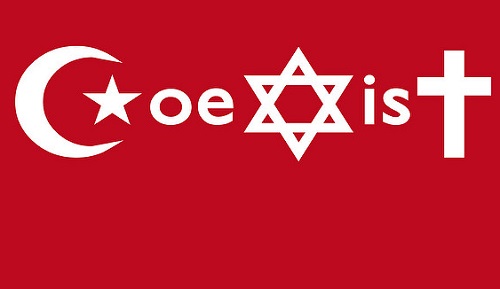
In the modern lexicon, “tolerance” stands alongside “equality” as an unquestioned and absolute good, a cornerstone of transatlantic values. True tolerance has brought the West unparalleled prosperity. But what kind of “tolerance” should we advance, and what other cultural concepts must support it?
In a new essay for Religion & Liberty Transatlantic, Josh Herring examines “The foundation of true tolerance.” He begins with the triumph of tolerance in public discourse:
In The Ethics of Rhetoric, University of Chicago rhetorician Richard Weaver wrote of “god terms.” By this phrase, Weaver meant the terms to which a culture attaches absolute goodness and which command unquestioned moral weight. When such terms are used in conversation, they carry the presumption of moral agreement. Writing in the 1950s, Weaver offered the terms “progress,” “freedom,” and “science” as examples of god terms of his own day.
The word “tolerance” functions as a late twentieth and early-twenty first century god term.
Yet between campus speech codes, sclerotic public debate, and the increasingly violent advocates of tolerance-or-else, the West has banished the concept of absolute truth. Public thinkers describe highly disparate religions as different roads to the same destination, having essentially the same teachings. The problem with this “thin” view of tolerance, Herring notes:
is that it ignores what each religion claims about itself. The Brahma of Hinduism is not the Allah of Islam, nor is the Trinitarian God of Christianity the Enlightenment pursued by Buddhism, nor is the all-powerful Creator YHWH of Judaism equivalent to the natural forces revered by paganism. Three of these traditions – Christianity, Judaism, and Islam – each claim to be the unique expression of religious truth, denying the truth claims of all others. This metaphor flattens each religious tradition, and as such fails to provide a solid grounding for tolerance.
The West has benefited from a much different kind of tolerance, a “thick” tolerance which itself depends upon one other traditional Judeo-Christian value. Herring, a Christian humanities instructor, sweeps through the teachings of Eastern and Western religions, modern philosophy, and the writings of Russell Kirk and Roger Scruton to define the kind of tolerance that the West needs to embrace – and to identify the foundational precept which, he argues compellingly, alone makes tolerance possible.
You can read his full essay here.
(Photo credit: naughton. This photo has been cropped. CC BY-SA 2.0.)